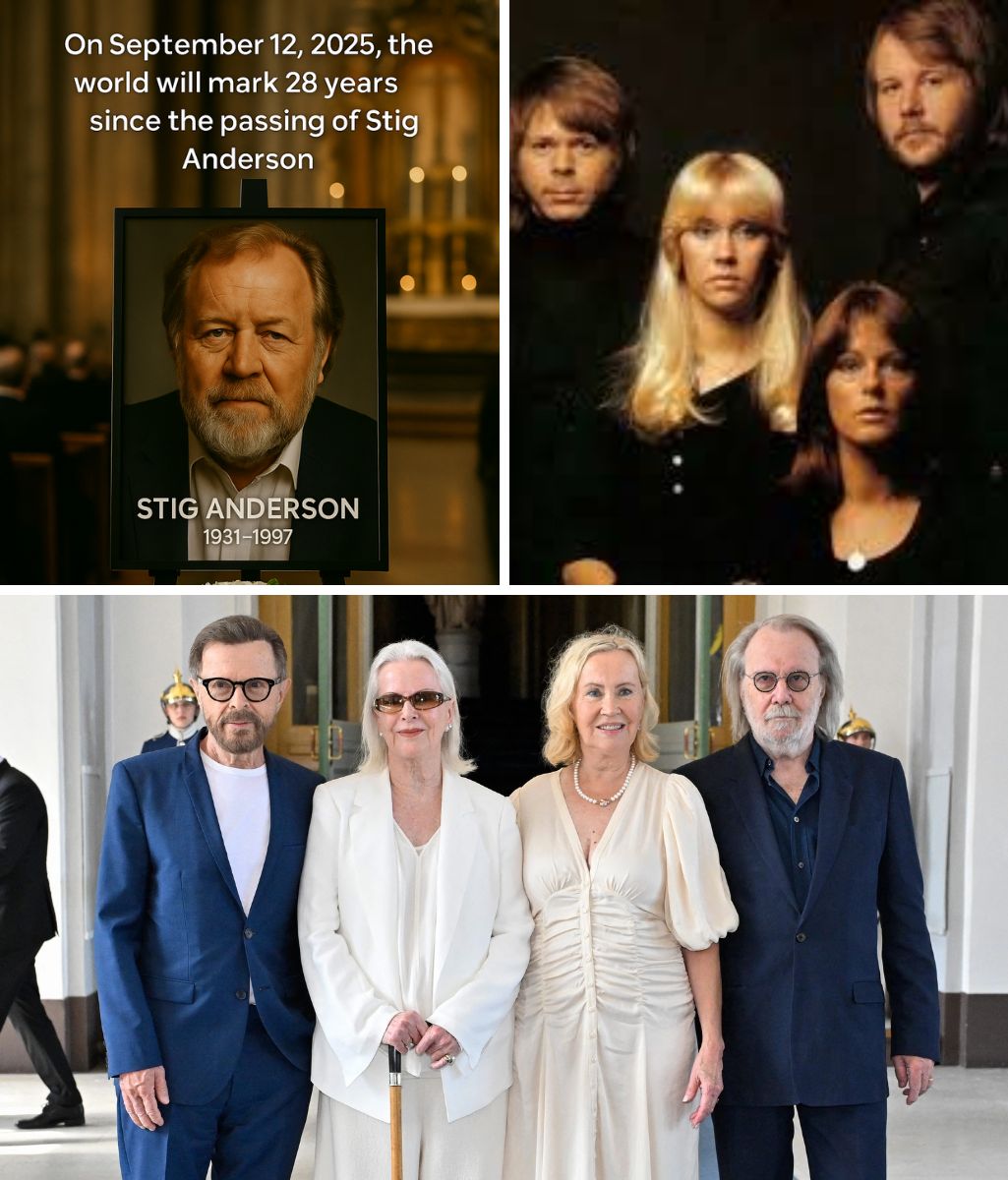
VERY SAD NEWS: The Untold Legacy of Stig Anderson — The Man Who Built ABBA’s Global Empire and Left a Nation Mourning
On September 12, 2025, the world will pause to remember a man whose vision reshaped the sound of modern music. It marks 28 years since the passing of Stig Anderson, the founder of Polar Music and the guiding force who helped transform ABBA from a promising Swedish pop act into an international phenomenon. His sudden death from a heart attack in 1997 shocked not only the music industry but also an entire nation that regarded him as a cultural pioneer.
Stig Anderson was more than a manager. He was a strategist, a lyricist, and above all, a believer in the power of music to transcend borders. Long before ABBA became a household name, Anderson had already built a reputation as a sharp businessman with an eye for opportunity. Yet it was his creative instincts that made him extraordinary. He co-wrote several of ABBA’s greatest hits—songs that remain as fresh today as when they first topped the charts. “Waterloo,” “Mamma Mia,” “S.O.S.,” “Fernando,” “Dancing Queen,” “Knowing Me, Knowing You,” and “The Name of the Game” are not simply songs; they are chapters in a cultural story that continues to echo across decades.
Each of these tracks carried a unique blend of joy, melancholy, and melody that resonated far beyond Sweden. In them, Anderson’s influence can be traced—not just in the lyrics, but in the vision of presenting ABBA to the world as something larger than a pop act. He believed music should not only be heard but experienced, and under his guidance, ABBA became the face of Scandinavian creativity on a global stage.
The respect Anderson commanded in Sweden was evident at his funeral, which was broadcast live on national television. Such honors are rarely extended outside the political or royal spheres. Yet for Anderson, it was a natural tribute. His contributions had elevated Swedish culture onto the world stage in a way few others had achieved. To millions of Swedes, he was not simply ABBA’s manager; he was a national treasure, a man whose work proved that a small country could produce music that touched hearts in every corner of the globe.
Nearly three decades after his passing, the weight of his influence is still felt. ABBA’s music continues to sell millions of records, inspire stage productions, and even fuel film adaptations, all of which trace their roots back to the foundation Anderson built. Without his strategic brilliance and lyrical craft, ABBA might never have become the enduring symbol of pop perfection that they are today.
For older generations, the mention of Stig Anderson is a reminder of a time when pop music carried both innocence and ambition. For younger listeners discovering ABBA anew, his legacy remains hidden within every harmony and chorus, waiting to be uncovered. His story is not one of fleeting fame but of enduring vision—the kind of vision that outlives its creator and becomes part of the cultural fabric.
As the world remembers him this September, Stig Anderson’s life serves as a reminder of what can happen when talent meets determination. He was a man who understood that music is not just entertainment; it is memory, identity, and emotion bound together in sound. In that sense, his greatest achievement was not only guiding ABBA to stardom but ensuring their songs would become timeless companions for generations yet to come.
Even now, almost thirty years later, his absence is felt. But so too is his presence—alive in every note of “Dancing Queen,” every chorus of “Mamma Mia,” and every lyric that carries ABBA’s unmistakable mark. That is the true measure of Stig Anderson’s legacy: a man whose heart may have stopped in 1997, but whose music—and whose vision—has never ceased to beat.